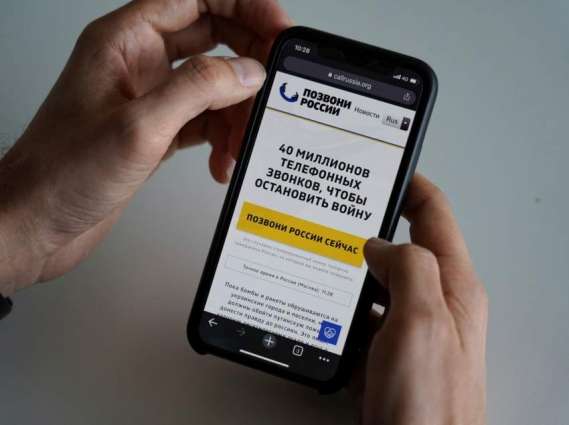In this digest, we will tell you about a more effective way to extract very viscous oil from great depths developed by Russian specialists, how often Russians change their smartphones, and about a new project to translate a Russian online cinema platform's films into sign language
MOSCOW (Pakistan Point News / Sputnik - 19th January, 2023) In this digest, we will tell you about a more effective way to extract very viscous oil from great depths developed by Russian specialists, how often Russians change their smartphones, and about a new project to translate a Russian online cinema platform's films into sign language.
BOOSTING OIL EXTRACTION METHODS
Employees of Kazan Federal University (KFU) have come up with a new technology that will allow high-viscosity oil to be extracted from great depths, the Russian Ministry of Science and Higher Education told Sputnik.
Reserves of high-viscosity heavy oil are an important component of the resource base of the Russian oil industry. However, this oil is difficult to process because, due to its high viscosity, it is difficult to pump out of the reservoir, and besides, it does not flow well through the well.
KFU scientists have proposed using in-situ catalysts containing metal in combination with microwave radiation when extracting this oil. The catalysts enable an increase in oil recovery and reduce the process's carbon footprint, thanks to in-situ oil upgrading, during which the transformation of the heavy oil composition under the action of catalysts leads to a decrease in high-molecular components and an increase in oil mobility. The scientists have developed several catalysts, mostly iron-nickel ones.
The use of in-situ catalysts makes it possible to produce high-viscosity oil from a depth of up to one kilometer (0.6 mile). In order to be able to extract such oil from deeper layers, KFU scientists have developed a technology known as microwave aquathermolysis, which allows the viscosity of heavy oil to be reduced effectively.
The new method can also be used to process heavy oil residues and other types of heavy hydrocarbon raw materials at the plant.
One in five Russians change their mobile phone once every year or two, trying not to miss out on new models, while about 7% change their smartphone only when it dies, according to a fresh poll by Otkritie FC Bank released on Thursday.
"About 22% of Russians change their mobile phone constantly, once every 1-2 years, trying not to miss a single new model. The clear leader here is the Moscow region (28%), while only 17% do this in the Volga Federal District," the bank said in the poll.
Another 62% of respondents change their mobile phone no more than once every 3-5 years, while 9% change their phones, but less often. Approximately 7% said that they never change their phone unless it is broken.
When asked about their mobile operators, respondents generally said that they are satisfied with the quality of mobile communications in their region. In particular, over 80% consider it to be good, and only 6% described it as poor.
The bank conducted a study among 1,000 Russians aged 18 to 65 years old in cities with a population of over 100,000 on January 12-17.
Russia's MTS mobile network operator has launched a project to translate films from the KION online cinema platform into sign language, and already adapted films will also be accompanied by subtitles, KION's press service said on Thursday.
"MTS ... has translated popular films and cartoons into Russian sign language for viewers with hearing impairments � an inclusive selection for family viewing, "Cinema in Sign Language," is already available on the main page of the KION online cinema. Subtitles will also accompany the adapted films," the platform said in a statement.
The platform and the mobile operator plan to further expand their inclusive selection, the statement read.
"We see a high demand for inclusive content and a positive response from the community, so we scaled up the program and adapted films and animation for family viewing," Elena Seregina, the head of the MTS Center for Social Responsibility, Diversity and Inclusion, was quoted as saying.




